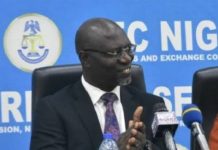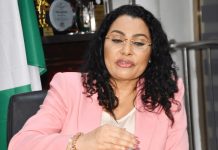Shell and Agip, two international oil firms with operations in Nigeria, have examined Caverton Group aircraft to assure the security of flying services provided by the company to the oil and gas industry.
Bode Makanjuola, Chief Executive Officer of Caverton Group, told media on the sidelines of the ongoing 2022 Nigeria Oil and Gas Conference in Abuja that air safety audits in the oil and gas sector were rigorous.
He added that two oil majors had examined the company’s aviation services. He claimed that Caverton’s activities were inspected for safety in the oil and gas sector three times a year.
Makanjuola said, “It is all about safety, and we operate under the most stringent conditions because we work for the oil and gas sector. Under those conditions, we are audited three times a year.
“We just completed our Shell and Agip audits and we have another audit coming up. So we are constantly being checked in terms of ensuring that we meet the right level of safety and quality.”
He explained that the Caverton Offshore Support Group was an offshore logistics company.
“We operate both in aviation and marine. We actually started as a marine company and we operated tankers,” he stated.
Makanjuola added, “As far back as 1999, we had two tankers with Shell, and we started the Nigerian LNG/LPG distribution programme as we brought in huge carriers for this.
“It was in 2004 that we moved into the aviation space and with the support of FCMB at the time as well as Shell, we were able to now break into that market and, today, we have about 60 or 70 per cent of that market.”
In terms of the firm’s diversification, the Caverton boss said, “What we do is that we look for where there are opportunities to develop the sector.
“So, we first got into helicopter business because we realised that there were no Nigerians in that sector, and we were able to conquer that.
“But we then realised that what the aviation sector was struggling with was maintenance and training, most importantly training. So we built the first-ever maintenance, repair and overhaul (MRO) centre in Lagos.”
Makanjuola stated that what the MRO centre meant was that the firm and other operators had no reason to fly any of their aircraft out of the country for significant repairs.
“So, the Nigerian Navy, Nigerian Airforce, and even the presidential fleet of Benin Republic actually use our (MRO) services,” he stated.













